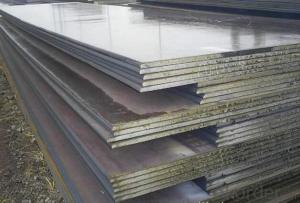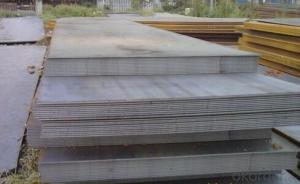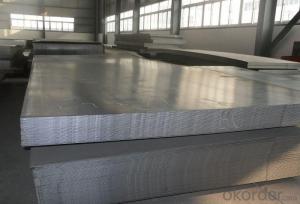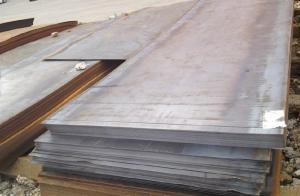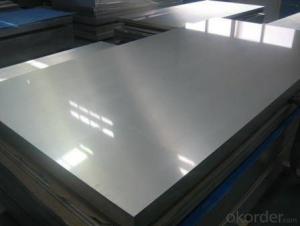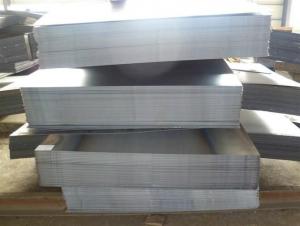Q195 Grade Slitting Edge Hot Rolled Steel Coils Sheet
- Loading Port:
- Tianjin
- Payment Terms:
- TT OR LC
- Min Order Qty:
- 3 m.t.
- Supply Capability:
- 100000 m.t./month
OKorder Service Pledge
OKorder Financial Service
You Might Also Like
Item specifice
Q195 Grade Slitting Edge Hot Rolled Steel Coils Sheet
Detailed Information of Q195 Grade Slitting Edge Hot Rolled Steel Coils Sheet
| C | Si | P | S | yield Strength MAp | Tensile strength MAp | Elongation % | ||
| A36 | 0.24 | 0.4 | 0.045 | 0.03 | 250 | 400-520 | 26 | |
| C | Si | Mn | P | S | Cu | |||
| A283 | ≤0.27 | 0.15-0.4 | ≤0.9 | ≤0.035 | ≤0.04 | ≥0.2 | ||
| Thickness: | 6mm, 8mm, 12mm, 16mm, 20mm, 25mm, 30mm, 50mm, 80mm, 100mm, 150mm, 200mm | |||||||
| Width: | 1500mm, 1800mm, 2000mm, 2200mm, 2500mm | |||||||
| Length: | 6000mm, 8000m, can cut to width and length | |||||||
| Packing Details; | according to customer‘s require or export’s standard | |||||||
| Delivery time; | 7 days for stock sizes, 20-25 days for new production sizes | |||||||
| Port: | Tianjin China | |||||||
Related Products Overviews of Q195 Grade Slitting Edge Hot Rolled Steel Coils Sheet
Product Name | Typical Grades | Diameter(mm) | Standard Adopted |
Carbon Steel | 20 (1020/S20C/C22) |
Ø16-Ø300 |
GB/SAE/ JIS/DIN |
40 (1040/S40C/C40) | |||
45 (1045/S45C/C45) | |||
Bearing Steel | GCr9 (51100/SUJ1) |
Ø12-Ø250 | |
GCr15 (52100/SUJ2/100Gr6) | |||
GCr9SiMn (A485-Gr.1/SUJ3) | |||
Cr-Mo Steel | 20Cr (5120/SCr420H/20Cr4) |
Ø12-Ø250 | |
40Cr (5140/SCr440/41Cr4) | |||
42CrMo(4140/SCM440/42CrMo4) | |||
Gear Steel | 20CrNiMo |
Ø16-Ø600 | |
20CrMn(5115/SMnC420/20MnCr5) | |||
20CrNiMo(8620/SNCM220/20CrMiMo2) |
Related Products Application of Q195 Grade Slitting Edge Hot Rolled Steel Coils Sheet
Carbon Steel | l Mold bottom l Plastic mold l Construction machinery parts l Automobile parts l Security grills l Screens l Construction |
Bearing Steel | l Aerospace l Navigation l Nuclear energy l Chemical industry l Electronic information l Petrochemical l Instrument and meter l Transportation |
Cr-Mo Steel | l Mechanism & Fasteners gear l Stressed components for vehicles l Engines and machines l Parts of larger cross-section |
Gear Steel | l All kinds of gears l Statically and dynamically stressed component for vehicles l Engines and machine l Larger cross-section parts l Crankshafts |
Company Introduction of Q195 Grade Slitting Edge Hot Rolled Steel Coils Sheet
CNBM International Corporation is the most import and export platform of CNBM group(China National Building Material Group Corporation) ,which is a state-owned enterprise, ranked in 270th of Fortune Global 500 in 2015.
With its advantages, CNBM International are mainly concentrate on Cement, Glass, Iron and Steel, Ceramics industries and devotes herself for supplying high quality series of refractories as well as technical consultancies and logistics solution.
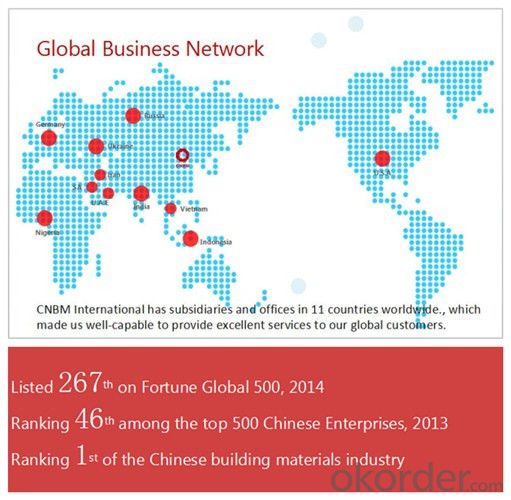
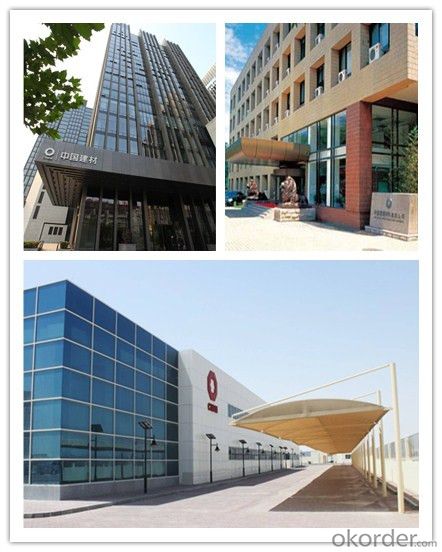
After-sale service | l CNBM provides the services and support you need for every step of our cooperation. We’re the business partners you can trust; you can relax and get on with doing business. l For any problem, please kindly contact us at any your convenient time, we’ll reply you in our first priority within 24 hours
|
Advantages
| l Industry experience over 20 years. l Shipment of goods -More than 70 countries worldwide. l The most convenient transport and prompt delivery. l Competitive price with best service. l High technical production line with top quality products. l High reputation based on best quality products.
|
Packaging & Delivery of Q195 Grade Slitting Edge Hot Rolled Steel Coils Sheet
Packaging Detail | Sea worthy packing /as per customer's packing instruction |
Delivery Detail | 15 ~ 40 days after receiving the deposit |
Products Show
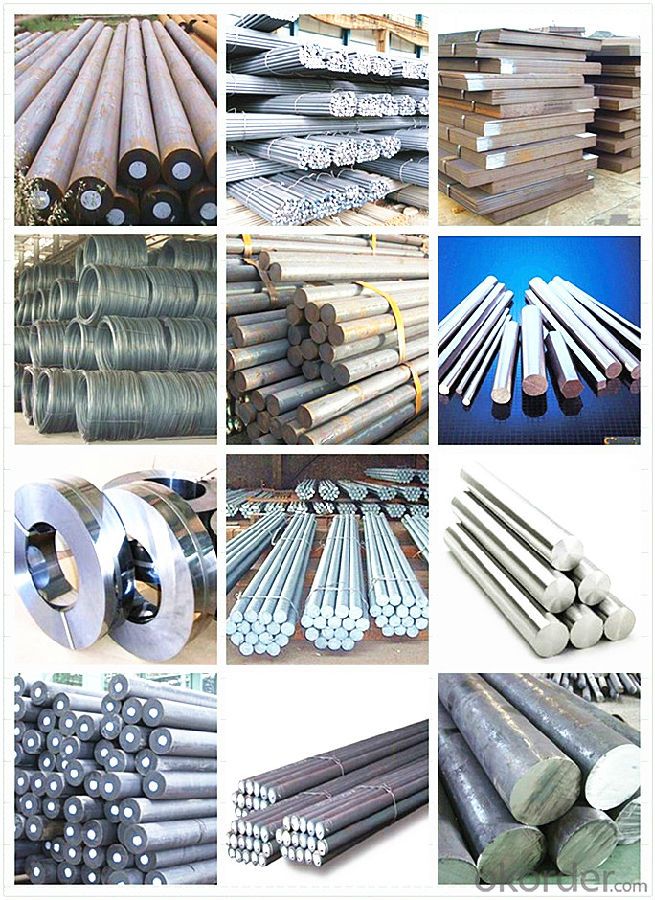
FAQ:
Are you a trading company or manufacturer? | Manufacturer |
What’s the MOQ? | 3 metric ton |
What’s your delivery time? | 15-35 days after downpayment received |
Do you Accept OEM service? | Yes |
what’s your delivery terms? | FOB/CFR/CIF |
What's the Payment Terms? | 30% as deposit,70% before shipment by T/T |
Western Union acceptable for small amount. | |
L/C acceptable for large amount. | |
Scrow ,Paybal,Alipay are also ok | |
Why choose us? | Chose happens because of quality, then price, We can give you both. Additionally, we can also offer professional products inquiry, products knowledge train (for agents), smooth goods delivery, excellent customer solution proposals. |
What's your available port of Shipment? | Main Port, China |
What’s your featured services? | Our service formula: good quality+ good price+ good service=customer's trust
|
Where are your Market? | Covering more than 160 countries in the world |
- Q:How is special steel used in the production of valves and fittings?
- The unique properties and characteristics of special steel play a vital role in manufacturing valves and fittings. These components are essential in industries like oil and gas, chemical, petrochemical, and power generation. Also known as alloy steel, special steel offers superior strength, corrosion resistance, and durability compared to regular carbon steel. These qualities make it an ideal material for creating valves and fittings that can withstand high pressure, extreme temperatures, and corrosive environments. In valve production, special steel is commonly used for critical parts like the valve body, bonnet, stem, and more. The valve body houses internal components and seals the flow of fluids or gases. Special steel's high tensile strength and resistance to deformation ensure that the valve body can handle pressure and maintain a tight seal, preventing leaks. Similarly, special steel is used in manufacturing fittings, which connect pipes or other equipment in fluid or gas systems. Fittings made from special steel can endure high pressures, temperature changes, and corrosive media, guaranteeing a reliable and leak-free connection. Special steel alloys, like stainless steel or duplex stainless steel, are often chosen for their excellent corrosion resistance. They can withstand harsh environments, including exposure to chemicals, saltwater, and acidic or alkaline substances. This corrosion resistance is critical in preventing valve and fitting failure, maintaining system integrity, and avoiding costly downtime or accidents. Furthermore, special steel can be customized to meet specific requirements, such as resistance to high or low temperatures or exceptional wear resistance. This allows manufacturers to tailor valves and fittings based on the particular application and operating conditions, ensuring optimal performance and longevity. Overall, the exceptional strength, corrosion resistance, and durability of special steel make it a widely used material in valve and fitting production. These properties enable valves and fittings to perform reliably in demanding environments, ensuring the safe and efficient operation of various industries.
- Q:How does special steel contribute to the aerospace racing aftermarket industry?
- Special steel is an essential component in the aerospace racing aftermarket industry as it plays a significant role in enhancing the performance, durability, and safety of aircraft and racing vehicles. Firstly, special steel is used in the manufacturing of critical engine components, such as turbine blades, compressor discs, and shafts. These components must withstand extreme temperatures, pressures, and mechanical stress during operation. Special steel alloys, such as nickel-based superalloys, provide excellent heat resistance, high strength, and exceptional corrosion resistance, ensuring peak performance and reliability of the engine systems. Moreover, special steel is vital in the construction of airframe structures. The lightweight but high-strength properties of special steel alloys, such as titanium alloys, are crucial in reducing the overall weight of aircraft and racing vehicles. This weight reduction contributes to improved fuel efficiency, increased speed, and better handling capabilities, making it an indispensable material in the aerospace racing aftermarket. In addition, special steel is utilized in the production of landing gear systems, which are crucial for safe takeoffs, landings, and overall maneuverability. The landing gear must endure immense forces and shock loads during these operations. Special steel alloys, like chromium-molybdenum steel, offer exceptional toughness, fatigue resistance, and impact strength, ensuring the landing gear's reliability and longevity. Furthermore, special steel plays a crucial role in the manufacturing of aerospace racing aftermarket components, such as fasteners, bearings, and gears. These components require high strength, wear resistance, and dimensional stability to withstand the demanding conditions of racing and provide optimal performance. Special steel alloys, including stainless steel and tool steel, possess these desirable properties, ensuring the longevity and reliability of these crucial components. Overall, special steel's contribution to the aerospace racing aftermarket industry cannot be overstated. Its exceptional properties, including high strength, heat resistance, corrosion resistance, and fatigue resistance, enable the production of reliable, efficient, and high-performance aircraft and racing vehicles. Without special steel, the aerospace racing aftermarket industry would be unable to achieve the level of advanced technology, speed, and safety that it currently enjoys.
- Q:How does free-cutting steel improve machinability?
- Free-cutting steel improves machinability by having a higher sulfur content, which acts as a lubricant during the machining process. This reduces friction and heat generation, leading to improved chip formation and easier cutting, resulting in higher cutting speeds, improved surface finish, and extended tool life.
- Q:How does special steel contribute to the manufacturing of defense equipment?
- Special steel plays a crucial role in the manufacturing of defense equipment due to its unique properties and characteristics. Firstly, special steel is known for its exceptional strength and durability, making it ideal for constructing various components of defense equipment. This high strength allows for the production of lightweight yet robust structures, enabling the development of advanced weaponry and protective gear. Moreover, special steel possesses excellent resistance to corrosion and wear, making it resistant to the harsh conditions faced by defense equipment in various environments. This resistance to corrosion ensures that the equipment remains functional and reliable even in extreme conditions, such as exposure to saltwater or acidic environments. Additionally, special steel offers exceptional heat resistance, which is crucial for defense equipment such as missile casings or jet engine components. Its ability to withstand high temperatures without losing its integrity or mechanical properties allows for the creation of more efficient and powerful defense systems. Furthermore, special steel can be tailored to meet specific requirements, enabling the manufacturing of customized defense equipment. It can be alloyed with various elements to enhance specific characteristics, such as increased hardness, improved magnetic properties, or better resistance to impact. This versatility allows for the production of defense equipment that meets the exact needs of military applications, enhancing their overall performance. In summary, special steel contributes significantly to the manufacturing of defense equipment by providing exceptional strength, resistance to corrosion and wear, heat resistance, and customization options. These properties enable the creation of more advanced, reliable, and efficient defense systems that meet the demanding requirements of modern military operations.
- Q:What are the main factors affecting the corrosion fatigue strength of special steel?
- The main factors affecting the corrosion fatigue strength of special steel include the corrosive environment, the presence of aggressive substances, the level of stress applied, the frequency of stress cycling, and the microstructure and composition of the steel itself.
- Q:What are the different casting techniques used for special steel?
- Some of the different casting techniques used for special steel include investment casting, sand casting, continuous casting, and centrifugal casting. Each technique has its own advantages and is chosen based on factors such as the complexity of the steel part, the desired quality, and cost considerations.
- Q:Can special steel be used in corrosive environments?
- Yes, special steel can be used in corrosive environments. Special steels like stainless steel and corrosion-resistant alloys are specifically designed to withstand corrosion and maintain their structural integrity in harsh and corrosive environments such as marine, chemical, or industrial settings. These steels contain additional alloying elements like chromium, nickel, or molybdenum, which provide enhanced corrosion resistance properties, making them suitable for use in corrosive environments.
- Q:What are the different methods of testing the mechanical properties of special steel?
- Special steel can be tested for its mechanical properties using several methods. These methods aim to determine characteristics such as strength, hardness, ductility, and more. Some commonly used methods include: 1. Tensile Testing: The tensile strength of steel is determined using this method. A sample is subjected to an increasing tensile force until it breaks. The force and elongation measurements are then used to calculate properties like ultimate tensile strength, yield strength, and elongation. 2. Hardness Testing: This method measures the steel's resistance to indentation or scratching. Popular hardness tests include Rockwell, Brinell, and Vickers hardness tests. They provide information about the steel's ability to withstand deformation, wear, or penetration. 3. Impact Testing: This method assesses the steel's ability to absorb energy during sudden impact or shock loading. The impact toughness of steel is often measured using tests like Charpy and Izod. These tests involve striking a notched sample with a pendulum and measuring the energy absorbed during fracture. 4. Bend Testing: This method evaluates the steel's ductility and flexibility. A sample is bent to a specific angle or radius until it fractures. The bend test helps determine the steel's ability to endure bending or forming processes without failure. 5. Fatigue Testing: This method examines the steel's resistance to repeated cyclic loading. Fatigue tests involve subjecting a sample to varying levels of stress for a specified number of cycles until it fails. This helps determine the steel's endurance limit and fatigue strength. 6. Microhardness Testing: This technique measures the hardness of small localized areas on the steel's surface. It is useful for evaluating surface treatments, case hardening, and the effects of heat treatment. 7. Non-Destructive Testing (NDT): These methods allow for testing without causing damage to the steel. Common NDT techniques include ultrasonic testing, magnetic particle testing, eddy current testing, and radiographic testing. NDT methods are used to detect internal defects, cracks, or discontinuities that may affect the steel's mechanical properties. These different testing methods provide valuable information about the mechanical properties of special steel. They assist in quality control, material selection, and ensuring that the steel meets required standards and specifications.
- Q:What are the different methods for quenching special steel?
- There are several methods for quenching special steel, including oil quenching, water quenching, air quenching, and polymer quenching. These methods involve rapidly cooling the steel to achieve desirable hardness and strength properties. Oil quenching involves submerging the steel in oil, which provides a slower and more controlled cooling process. Water quenching, on the other hand, involves immersing the steel in water for a faster and more aggressive cooling rate. Air quenching refers to simply exposing the steel to air, allowing it to cool naturally. Lastly, polymer quenching involves using a specialized polymer solution as the quenching medium, which offers a combination of controlled cooling and reduced distortion. The choice of quenching method depends on the specific steel composition and desired properties.
- Q:What are the main applications of special steel in the marine sector?
- Special steel is widely used in the marine sector for various applications. Some of the main applications include shipbuilding, offshore oil and gas exploration, and marine equipment manufacturing. Special steel is used to construct the hulls and superstructures of ships, as well as various components such as propellers, shafts, and rudders. Its high strength, durability, and corrosion resistance make it ideal for withstanding the harsh conditions of the marine environment. Additionally, special steel is also used in the construction of offshore platforms, pipelines, and underwater structures, as it can withstand extreme pressures and resist corrosion caused by saltwater.
1. Manufacturer Overview |
|
|---|---|
| Location | |
| Year Established | |
| Annual Output Value | |
| Main Markets | |
| Company Certifications | |
2. Manufacturer Certificates |
|
|---|---|
| a) Certification Name | |
| Range | |
| Reference | |
| Validity Period | |
3. Manufacturer Capability |
|
|---|---|
| a)Trade Capacity | |
| Nearest Port | |
| Export Percentage | |
| No.of Employees in Trade Department | |
| Language Spoken: | |
| b)Factory Information | |
| Factory Size: | |
| No. of Production Lines | |
| Contract Manufacturing | |
| Product Price Range | |
Send your message to us
Q195 Grade Slitting Edge Hot Rolled Steel Coils Sheet
- Loading Port:
- Tianjin
- Payment Terms:
- TT OR LC
- Min Order Qty:
- 3 m.t.
- Supply Capability:
- 100000 m.t./month
OKorder Service Pledge
OKorder Financial Service
Similar products
New products
Hot products
Related keywords
